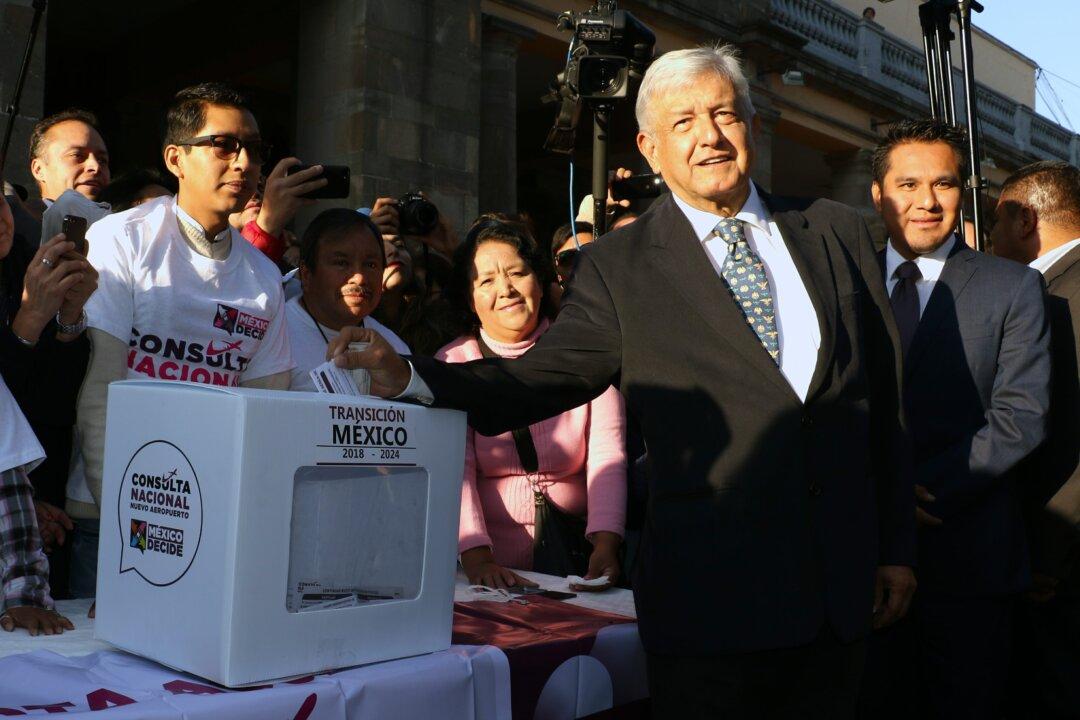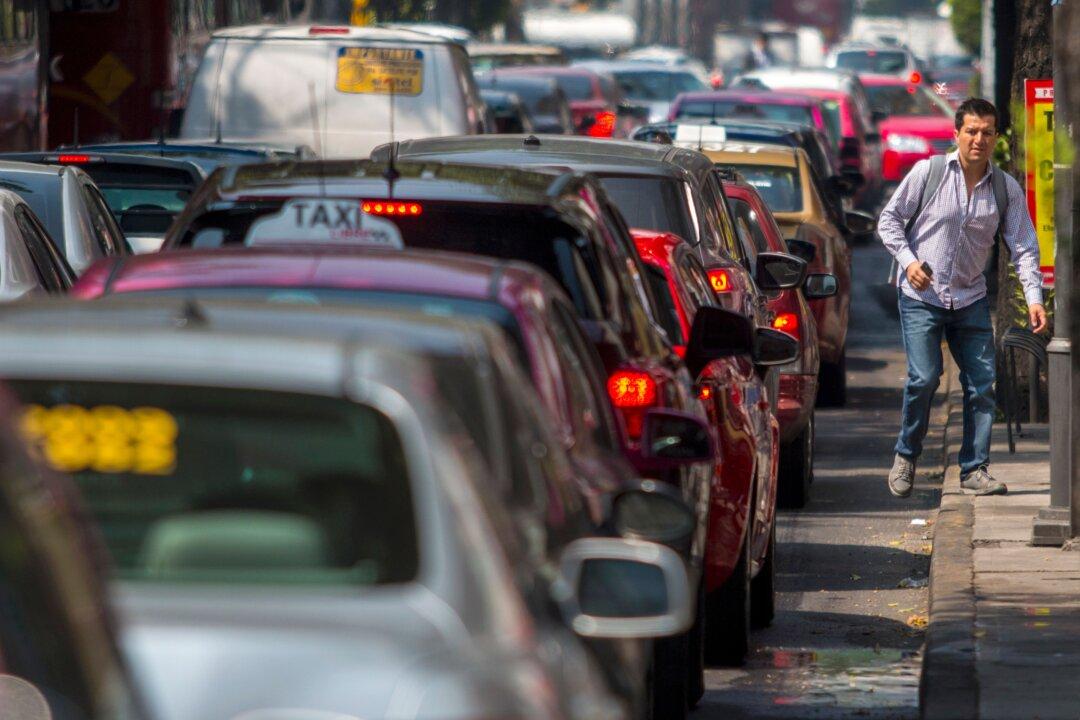MEXICO CITY—For Mexico’s business community, the decision by voters to abandon Mexico City’s new airport is being seen as an indication that President-elect Andres Manuel Lopez Obrador, who asked for a referendum on the issue, will not be friendly to business when he takes office Dec. 1.
The Mexican peso began tumbling against the dollar in futures markets immediately after the announcement that the $13.6 billion project will be canceled. In a press conference on Oct. 28, Gustavo de Hoyos Walther, president of the Coparmex chamber of commerce, blasted the outcome and blamed Lopez Obrador for subjecting the fate of the airport to what he called an “illegitimate” referendum.


